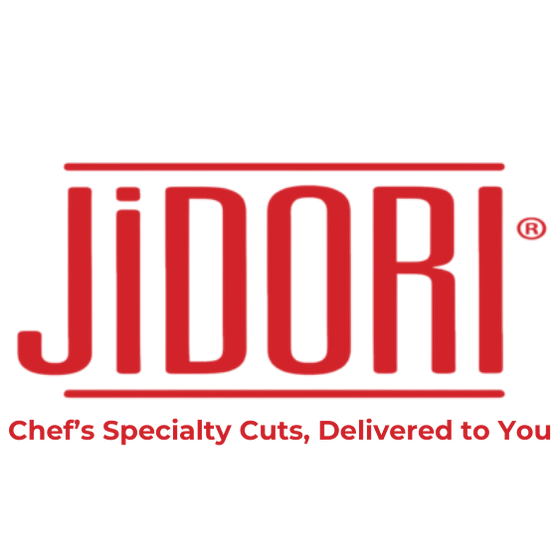Exceptional ingredients are foundational to producing memorable meals. So when it comes to chicken, the available options of higher-end or “premium” products can be nuanced, with terms like "Jidori" and "Heritage" attached to the packaging. Both represent a significant difference in quality beyond conventional supermarket poultry, yet they offer distinct characteristics that cater to different culinary visions. Let’s unpack what sets these two high-quality chicken types apart, helping you choose the perfect bird for your next masterpiece meal.
What is Heritage (or Heirloom) Chicken

Heritage chicken refers to specific breeds that meet strict criteria established by organizations like the American Poultry Association. These are often older, traditional breeds that possess characteristics lost in industrial farming. Key criteria include:
-
Naturally Mated: Not bred through artificial insemination.
-
Long, Productive Outdoor Lifespan: They live longer and are active.
-
Slow Growth Rate: They reach market weight at a natural, slower pace, typically between 14-24 weeks (compared to 6-9 weeks for conventional chickens).
Advantages:
-
Due to their slower growth and active lives, Heritage chickens develop a more pronounced, "chicken-y" flavor. It's often described as richer, with earthy and robust notes.
-
The meat tends to be firmer and more muscular, offering a satisfying chew and excellent mouthfeel. This texture holds up beautifully to various cooking methods.
-
Raising Heritage breeds often aligns with sustainable and ethical farming practices, supporting biodiversity and animal welfare.
Disadvantages:
-
Higher Cost: Slower growth rates and specialized farming mean a higher price point.
-
Less Consistent Size/Shape: Being natural breeders, their size and conformation can vary more than genetically uniform birds.
-
Requires Different Cooking: Due to leaner, firmer meat, Heritage chicken can benefit from longer, slower cooking methods (e.g., braising, roasting) to achieve optimal tenderness, though some cuts can be grilled effectively. High-heat, fast cooking may dry it out if not managed carefully.
What is Jidori Chicken

Jidori is a brand and a specific philosophy of chicken rearing, originating from Japan and now primarily raised in California. While not a specific breed like Heritage, "Jidori" implies a strict standard of care and feeding designed to mimic the quality of traditional Japanese free-range chickens. This typically includes:
- Specific Feed: A custom high-quality diet often including ingredients like corn, soy, and alfalfa, free from antibiotics or hormones.
- Free-Range Environment: Chickens are given ample space to roam, forage, and express natural behaviors.
- Daily Delivery: Chickens are delivered to restaurants within 24 hours of processing, ensuring unparalleled freshness.
Advantages:
-
Exceptional Freshness: The "daily delivery" model means Jidori chicken often arrives to the kitchen fresher than almost any other poultry, contributing significantly to its taste and texture.
-
Balanced Flavor Profile: Jidori chicken offers a clean, sweet, and delicate chicken flavor. It's not as intensely "chicken-y" as some Heritage breeds, but it’s remarkably pure and versatile.
-
Tender & Juicy Texture: Despite being a lean bird, its natural upbringing and meticulous processing result in consistently tender and exceptionally juicy meat.
-
Versatile Cooking: Its balanced flavor and tender texture make it incredibly adaptable to a wide range of cooking methods, from quick searing to roasting, without fear of it being tough or dry. It's often favored for preparations where the chicken's natural flavor is meant to shine, like yakitori or simple roasts.
Disadvantages:
-
Higher Cost: Like Heritage, premium rearing practices lead to a higher price.
-
Brand-Specific: The term "Jidori" refers to a specific producer's methods and brand, not a universal breed definition, meaning quality can vary between producers claiming similar methods (though the Jidori Home brand from California is highly consistent).
Heritage vs Jidori Chicken
-
Flavor Intensity: Heritage offers a bolder, more pronounced "old-school" chicken flavor. Jidori provides a cleaner, sweeter, and incredibly pure chicken taste.
-
Texture: Heritage is often firmer, more muscular. Jidori is consistently tender and juicy.
-
Best Use: Heritage shines in dishes where its robust flavor can be the star and where longer cooking enhances its texture (e.g., coq au vin, whole roasted). Jidori is incredibly versatile, excelling in preparations where freshness and delicate tenderness are paramount (e.g., yakitori, paillard, quick pan-sears, sophisticated roasts).
-
Availability: Varies by region and market. Both may be found locally and online. Jidori chicken ships to all 50 states and can also be found at local distributors and grocery stores. Dishes featuring Jidori chicken can also be enjoyed at select high-end restaurants.
Ultimately, both Heritage and Jidori chicken represent the pinnacle of poultry quality. Your choice will depend on the desired flavor profile, textural preference, and the specific culinary application you have in mind. With Jidori chicken, you can always be sure that the products will deliver on consistently superior chicken to elevate even the most simplest dishes.

